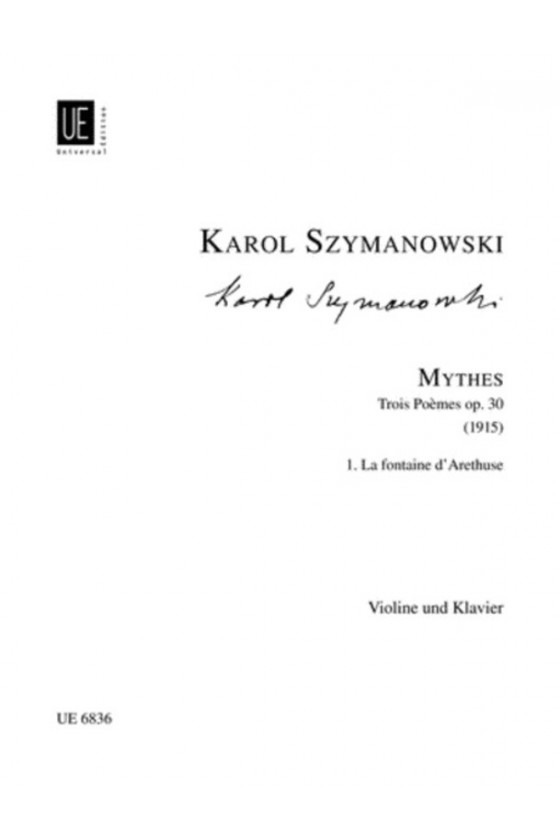Szymanowski, Karol
Karol Maciej Szymanowski is widely regarded as the most famous Polish composer of the early twentieth century. His unique style and innovative approach to composition have earned him a place among the best Polish composers of all time. Szymanowski's works span multiple genres and periods, showcasing his versatility and creativity.
Early Life and Influences
Born on October 6, 1882, in Tymoszówka, then part of the Russian Empire's Kyiv Governorate, Karol Szymanowski hailed from the affluent land-owning Polish gentry class. The Korwin-Szymanowskis family gave him a privileged upbringing and a deep appreciation for music. Szymanowski's musical journey began with private lessons from his father before he enrolled at the Gustav Neuhaus Elisavetgrad School of Music in 1892.
During his formative years, Szymanowski was influenced by the late Romantic German school and the early compositions of Alexander Scriabin. His early works, such as the Étude Op. 4 No. 3 and his first two symphonies, reflect these influences. However, as a composer, Szymanowski developed his unique style, characterized by impressionistic and atonal elements.
The Evolution of Szymanowski's Style
Szymanowski's compositional style underwent a significant transformation throughout his career. His later works moved away from the traditional tonal structures and embraced a more impressionistic and atonal approach. One of his notable compositions from this period is the Third Symphony, which showcases his experimentation with these new musical techniques.
Another significant influence on Szymanowski's music was the folk music of the Polish Górale people. This influence is particularly evident in his third era of composition, which includes works such as the ballet "Harnasie," the Fourth Symphony, and his sets of Mazurkas for piano. By incorporating elements of Polish folk music into his compositions, Szymanowski created a distinctively nationalistic sound that resonated with audiences.
Szymanowski's Notable Compositions
Karol Szymanowski's work encompasses many compositions, including symphonies, concertos, operas, and vocal music. His most famous opera, "Król Roger," created between 1918 and 1924, is a masterpiece that showcases his unique musical language and dramatic storytelling.
Among his other notable compositions is Symphony No. 2, also known as "Hagith," which highlights Szymanowski's mastery of orchestration and his ability to create evocative and atmospheric music. "The Love Songs of Hafiz" is another remarkable piece where Szymanowski sets mystical Persian poetry to music, creating a captivating fusion of Eastern and Western influences.
One of Szymanowski's most profound and emotionally charged compositions is the Stabat Mater, a choral work exploring grief, loss, and redemption themes. This powerful piece showcases Szymanowski's ability to create deeply moving and spiritually charged music.
Recognition and Legacy
Karol Szymanowski's contributions to music were widely recognized during his lifetime. He received numerous accolades, including the Officer's Cross of the Order of Polonia Restituta, the Order of Merit of the Republic of Poland, and various Polish and international medals. His impact on Polish music cannot be overstated, as he paved the way for future composers to explore new musical frontiers.
Today, Szymanowski's music continues to captivate audiences, and his influence can be heard in the works of contemporary Polish composers. His legacy as one of the greatest Polish composers of all time remains intact, and his music is a testament to his genius and artistic vision.
Conclusion
Karol Szymanowski's remarkable journey as a composer and pianist has left an indelible mark on the music world. From his early works influenced by the late Romantic German school to his later exploration of impressionistic and atonal elements, Szymanowski's music is a testament to his artistic evolution.
Through his incorporation of Polish folk music and his ability to create deeply emotional and spiritually charged compositions, Szymanowski crafted a unique musical language that resonates with audiences today. His legacy as the master of Polish music is secure, and his contributions will be celebrated for generations to come.

Szymanowski Mythes Op 30 1. La fontaine d'Arethuse For Violin
Szymanowski Mythes Op 30 1. La fontaine d'Arethuse For Violin


